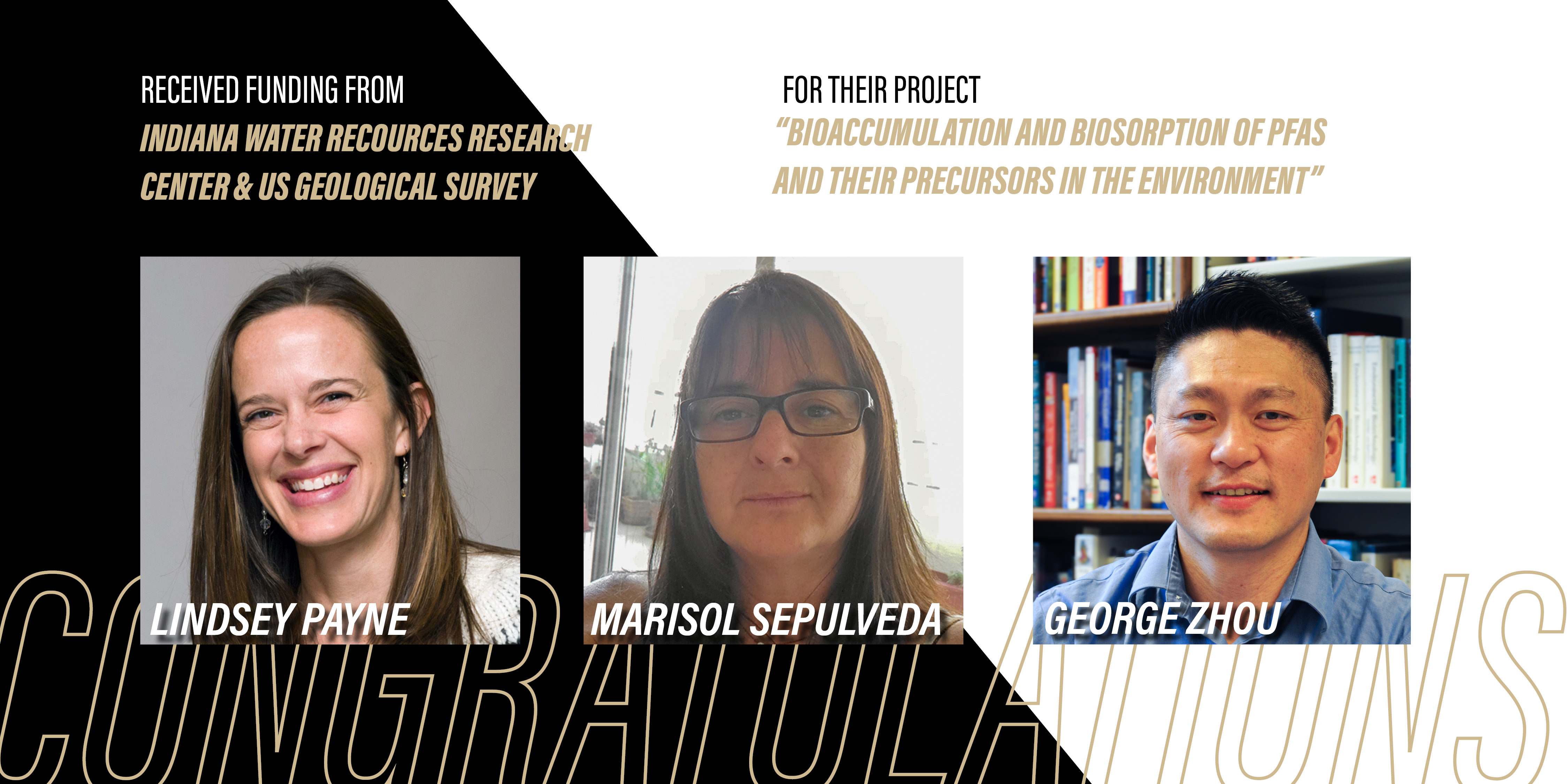Lindsey Payne (EEE), Marisol Sepulveda (FNR), and George Zhou (EEE/CE) receive funding for PFAS research from Indiana Water Resources Research Center and U.S. Geological Survey (USGS)

Congrats to Lindsey Payne (EEE), Marisol Sepulveda (FNR), and George Zhou (EEE/CE) for receiving funding from Indiana Water Resources Research Center and U.S. Geological Survey (USGS).
He shares that "Per- and polyfluoroalkyl substances (PFAS) are a large group of chemicals that have been widely used in industry and consumer products for over 80 years. PFAS are often called “forever chemicals” as they are extremely persistent and can be detected in drinking water, air, soil, wildlife, and in almost all Americans’ blood. Exposure to PFAS may lead to multiple adverse health problems, but limited information is available on how PFAS are absorbed, accumulated, and transformed in various processes in the environment."
In their study, researchers with the help of students, will "investigate the adsorption and accumulation of PFAS and their potential biotransformation in biofilms and benthic macroinvertebrates. The results will contribute improved understanding of the fate and transport of PFAS in the natural environment. The new knowledge will also help professionals and the general public to understand biological processes related to PFAS and better manage PFAS to protect human health."
